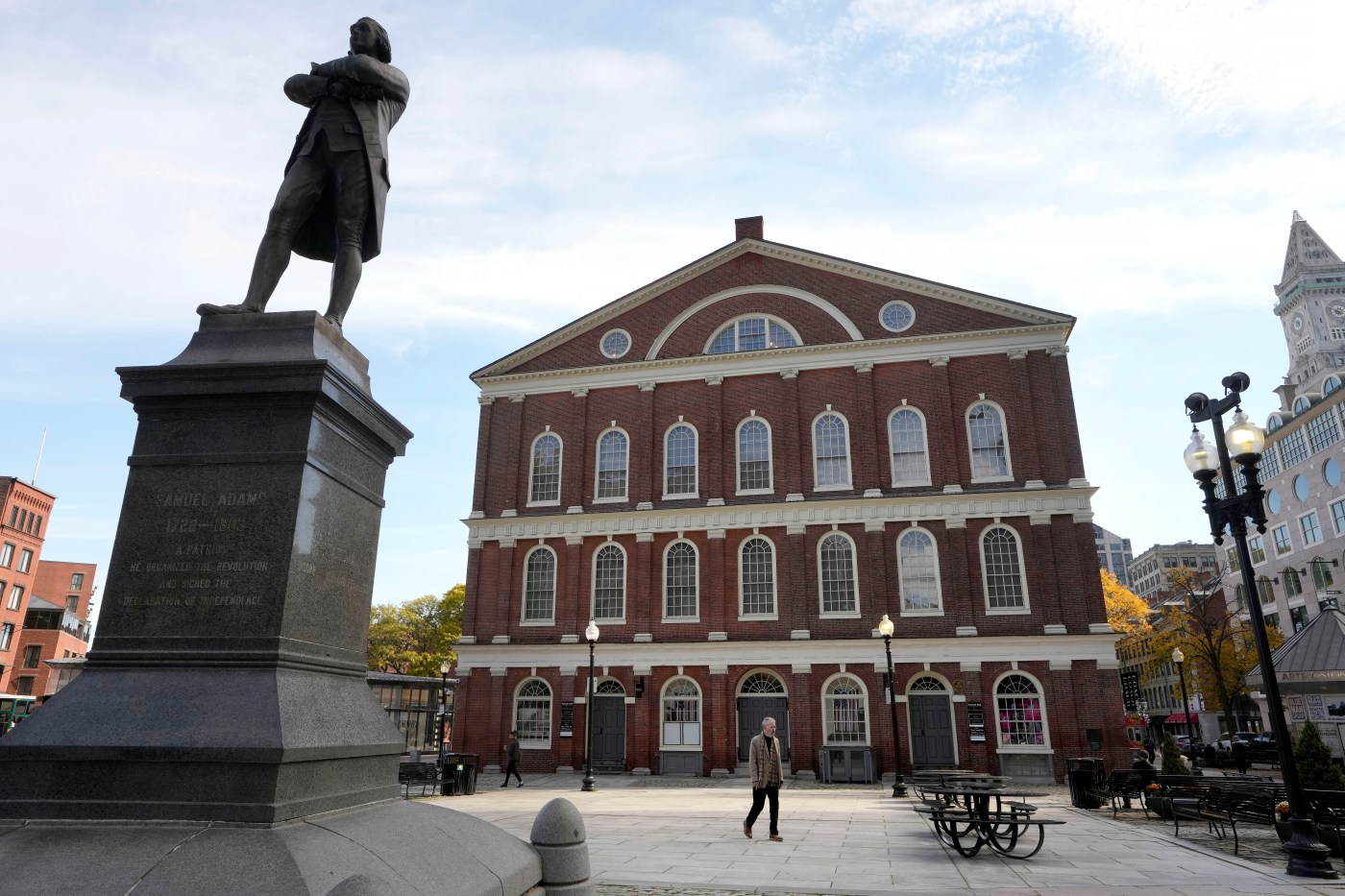
Boston City Council moves to rename Faneuil Hall
The Boston City Council on Wednesday overwhelmingly approved a resolution that calls for renaming Faneuil Hall, a popular tourist site that is named after a wealthy merchant who owned and traded slaves.
The measure, authored by Councilor Tania Fernandes Anderson, is likely to garner political support for changing the name of Faneuil Hall but it remains unclear when, if ever, the name will be changed. The City Council doesn’t have the authority to change the name. That power lies with a little-known city board called the Public Facilities Commission.
In her resolution, Fernandes Anderson decried the building’s namesake, Peter Faneuil, as a “white supremacist, a slave trader, and a slave owner who contributed nothing recognizable to the ideal of democracy.”
“Symbols are extremely important,” Fernandes Anderson said ahead of the 10-3 vote. “As we look at them, we understand, internalize and become our environment … We continue to believe we are less than because racists, slave traders, rapists, looters … actually get to be honored with a name.”
Councilman Brian Worrell, who voted for the measure, said the name change would be an important step in addressing systemic racism in the city.
“These landmarks in the community, in the city of Boston, should reflect our values,” he said. “This action sends a powerful message about our commitment to justice and equity … A new name would symbolize a journey towards racial reconciliation and racial justice.”
Still, the three members who voted against the measure were the only white men on the council. Among them was Councilman Frank Baker who criticized the measure because the council doesn’t have the authority to change the name and the resolution didn’t propose a new name. He also said the measure alone wouldn’t improve race relations in the city.
“I don’t think it really does anything to afford a dialogue on race. They want to rip the name from there with no dialogue,” he said of resolution’s supporters. “They are not respecting our history. We can’t even have a hearing on who (Peter Faneuil) was.”
Former Mayor Marty Walsh opposed a name change and current Mayor Michelle Wu was noncommittal. She told reporters Wednesday that more research was needed and that there were mixed views on the name change in the community, given the building’s “unique history” and the fact it is known “around the world as the seat of liberty and the place where so many of the early abolitionist conversations took place.”
The push is part of a larger discussion on forms of atonement to Black Bostonians for the city’s role in slavery and its legacy of inequality. Last year, the council formed a task force to study how it can provide reparations for and other forms of atonement to Black Bostonians for the city’s role in slavery and its legacy of inequality.
The downtown meeting house was built for the city by Faneuil in 1742 and was where Samuel Adams and other American colonists made some of the earliest speeches urging independence from Britain.
“It is important that we hold a hearing on changing the name of this building because the name disrespects Black people in the city and across the nation,” Pastor Valerie Copeland, of the Dorchester Neighborhood Church, said in a statement. “Peter Faneuil’s involvement in the transatlantic slave trade is an embarrassment to us all.”
The Rev. John Gibbons, a minister at the Arlington Street Church, said in a statement that the goal is not to erase history with a name change but to correct the record. “He was a man who debased other human beings,” he said. “His name should not be honored in a building called the cradle of liberty.”
Some activists suggested the building could instead honor Crispus Attucks, a Black man considered the first American killed in the Revolutionary War. Fernandes Anderson said the new name should be chosen by the community and the building could be renamed for a “true freedom fighter” such as Frederick Douglass. The resolution also proposed Elizabeth Freeman, an enslaved woman who went to court to win her freedom more than 80 years before the Emancipation Proclamation.
The push to rename famous spots in Boston is not new.
In 2019, Boston officials approved renaming the square in the historically Black neighborhood of Roxbury to Nubian Square from Dudley Square. Roxbury is the historic center of the state’s African American community. It’s where a young Martin Luther King, Jr. preached and Malcolm X grew up.
Supporters wanted the commercial center renamed because Roxbury resident Thomas Dudley was a leading politician when Massachusetts legally sanctioned slavery in the 1600s.
A year earlier, the Red Sox successfully petitioned to change the name of a street near Fenway Park that honored a former team owner who had resisted integration.


